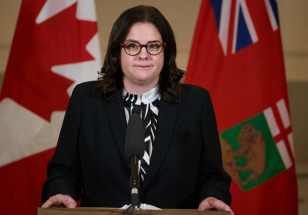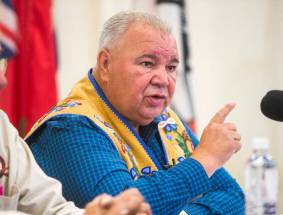Building a better reconciliation
Read this article for free:
or
Already have an account? Log in here »
To continue reading, please subscribe:
Monthly Digital Subscription
$0 for the first 4 weeks*
- Enjoy unlimited reading on winnipegfreepress.com
- Read the E-Edition, our digital replica newspaper
- Access News Break, our award-winning app
- Play interactive puzzles
*No charge for 4 weeks then price increases to the regular rate of $19.00 plus GST every four weeks. Offer available to new and qualified returning subscribers only. Cancel any time.
Monthly Digital Subscription
$4.75/week*
- Enjoy unlimited reading on winnipegfreepress.com
- Read the E-Edition, our digital replica newspaper
- Access News Break, our award-winning app
- Play interactive puzzles
*Billed as $19 plus GST every four weeks. Cancel any time.
To continue reading, please subscribe:
Add Free Press access to your Brandon Sun subscription for only an additional
$1 for the first 4 weeks*
*Your next subscription payment will increase by $1.00 and you will be charged $16.99 plus GST for four weeks. After four weeks, your payment will increase to $23.99 plus GST every four weeks.
Read unlimited articles for free today:
or
Already have an account? Log in here »
Hey there, time traveller!
This article was published 27/01/2022 (1409 days ago), so information in it may no longer be current.
The documents are finally on the way, it’s time for funding to follow.
Last week, the federal government announced it would hand over hundreds of thousands of previously unreleased residential school records to the National Centre for Truth and Reconciliation based in Winnipeg. The more than 875,000 documents were in a holding pattern due to “third-party obligations” to Catholic organizations, according to government officials.

A memorandum of agreement signed by both parties will determine how and when these historic records will be transferred to the centre. Among the files are “school narratives,” which describe important details about each federally-funded and church-run institution, such as names of administrators, student populations and reports of abuse.
Documents like these are integral to the work of the NCTR and the goals of reconciliation more broadly. Canada can’t reconcile its present without fully understanding and acknowledging the truth of what happened at these schools.
The system was designed to further the colonial agenda by separating First Nations, Inuit and Métis children from their families and their culture. This was done with force and abuse was rampant. Children died in these places and for decades their kin have been left without answers. School narratives offer a paper trail to the truth and can provide a modicum of closure for communities that have been mourning the loss of these young people for generations.
“Whether it’s finding unmarked graves or gathering records of what took place — it helps us honour and remember all the children who never made it home,” said Stephanie Scott, executive director of the NCTR.
Demand for records has grown more urgent with the ongoing discovery of unmarked graves at former school sites across the country — most recently, 93 presumed graves were identified at St. Joseph’s Mission Residential School in British Columbia.
“Whether it’s finding unmarked graves or gathering records of what took place– it helps us honour and remember all the children who never made it home”
– Stephanie Scott, executive director of the NCTR
The centre, located on the University of Manitoba campus, is responsible for archiving and sharing information about the residential school system with Indigenous communities and the general public. It’s a massive undertaking made larger with the release of every new batch of records.
Last fall, during the federal election, the Liberals campaigned on a promise to spend $60 million on the development of a new home for the NCTR, as well as an additional $5 million in annual operating support in each of the following five years. The funding would provide much needed resources for the archival process while allowing the centre to move forward on its plans for a purpose-built location.
The NCTR is currently housed in an historic building on Dysart Road. The goal is to open a new facility within five years on the recently acquired Southwood lands within the U of M’s Fort Garry campus. The development will include a permanent space to store the centre’s collection of records and oral histories, a learning lodge, ceremonial spaces and facilities to support survivors and their families.
Investment in this new building is one concrete way the federal government can support the ongoing work of reconciliation in Canada. Crown-Indigenous Relations Minister Marc Miller has said he intends to follow through on those campaign pledges.
The government has made good on its promise to turn over long-hidden documents. Now it’s time to make good on its financial promises.
The federal budget is right around the corner; let’s hope reconciliation is among the line items.







